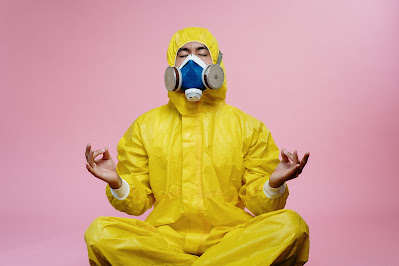In the realm of health and fitness, the immune system stands as the unsung hero, a guardian shield tirelessly defending our bodies against invading pathogens. Its significance cannot be overstated—acting as our body's fortification, the immune system plays a pivotal role in maintaining overall well-being and peak physical condition.
What is the immune system?
The immune system is a complex network comprising cells, tissues, and organs working harmoniously to safeguard us from harmful threats like bacteria, viruses, fungi, and other pathogens. It's our innate defense mechanism, equipped with a remarkable ability to recognize and combat these intruders.
How does the immune system operate?
At its core, the immune system operates through two primary lines of defense: the innate and adaptive systems. The innate system acts as the first line of defense, offering immediate protection against pathogens. Meanwhile, the adaptive system, with its specialized cells, remembers specific pathogens and mounts a more targeted response upon subsequent encounters.
What influences the immune system?
Several lifestyle factors influence the immune system's efficacy, making it imperative to prioritize activities that bolster its function. Adequate nutrition, regular exercise, quality sleep, stress management, and vaccination are pivotal contributors to a robust immune response.
Nutrition acts as fuel for the immune system, supplying essential vitamins and minerals necessary for optimal function. Incorporating a balanced diet rich in fruits, vegetables, lean proteins, and healthy fats can enhance immune health. Key nutrients like vitamin C, vitamin D, zinc, and antioxidants play a pivotal role in supporting immune function.
What about physical exercise?
Exercise, beyond its benefits for physical fitness, also positively impacts the immune system. Regular physical activity contributes to better circulation, allowing immune cells to move freely throughout the body, strengthening their surveillance capabilities against potential threats.
Quality sleep is another cornerstone of a healthy immune system. During sleep, the body undergoes crucial repair processes, and adequate rest is fundamental for immune cell production and functionality. Chronic sleep deprivation weakens immune responses, leaving the body more susceptible to infections.
What can affect the immune system negatively?
Stress, if left unchecked, can have detrimental effects on the immune system. Prolonged stress leads to the release of stress hormones, which can suppress immune function. Engaging in relaxation techniques such as meditation, yoga, or deep breathing exercises can help manage stress levels and bolster immune resilience.
Moreover, vaccinations serve as a critical tool in fortifying the immune system against specific pathogens, offering a proactive defense strategy.
Well... wrapping up!
Understanding the pivotal role of the immune system in health and fitness underscores the importance of nurturing and supporting its function. By adopting a holistic approach encompassing nutrition, exercise, sleep, stress management, and vaccination, individuals can empower their immune systems to function optimally, fostering overall well-being and vitality.
In this pursuit of a healthy lifestyle, let us acknowledge and celebrate the intricate prowess of our immune system—a remarkable shield preserving our health and enabling us to thrive in the dynamic landscape of wellness and fitness.
References:
- Abbas, A. K., Lichtman, A. H., & Pillai, S. (2018). Cellular and Molecular Immunology. Elsevier.
- Nieman, D. C., & Wentz, L. M. (2019). The compelling link between physical activity and the body's defense system. Journal of Sport and Health Science, 8(3), 201-217.
- Calder, P. C., Carr, A. C., Gombart, A. F., & Eggersdorfer, M. (2020). Optimal Nutritional Status for a Well-Functioning Immune System Is an Important Factor to Protect against Viral Infections. Nutrients, 12(4), 1181.
- Besedovsky, L., Lange, T., & Born, J. (2012). Sleep and immune function. Pflügers Archiv-European Journal of Physiology, 463(1), 121-137.
- Gouin, J. P., Kiecolt-Glaser, J. K., & Malarkey, W. B. (2008). The impact of psychological stress on the immune system. The Oxford Handbook of Psychoneuroimmunology, 151-167.







No comments:
Post a Comment